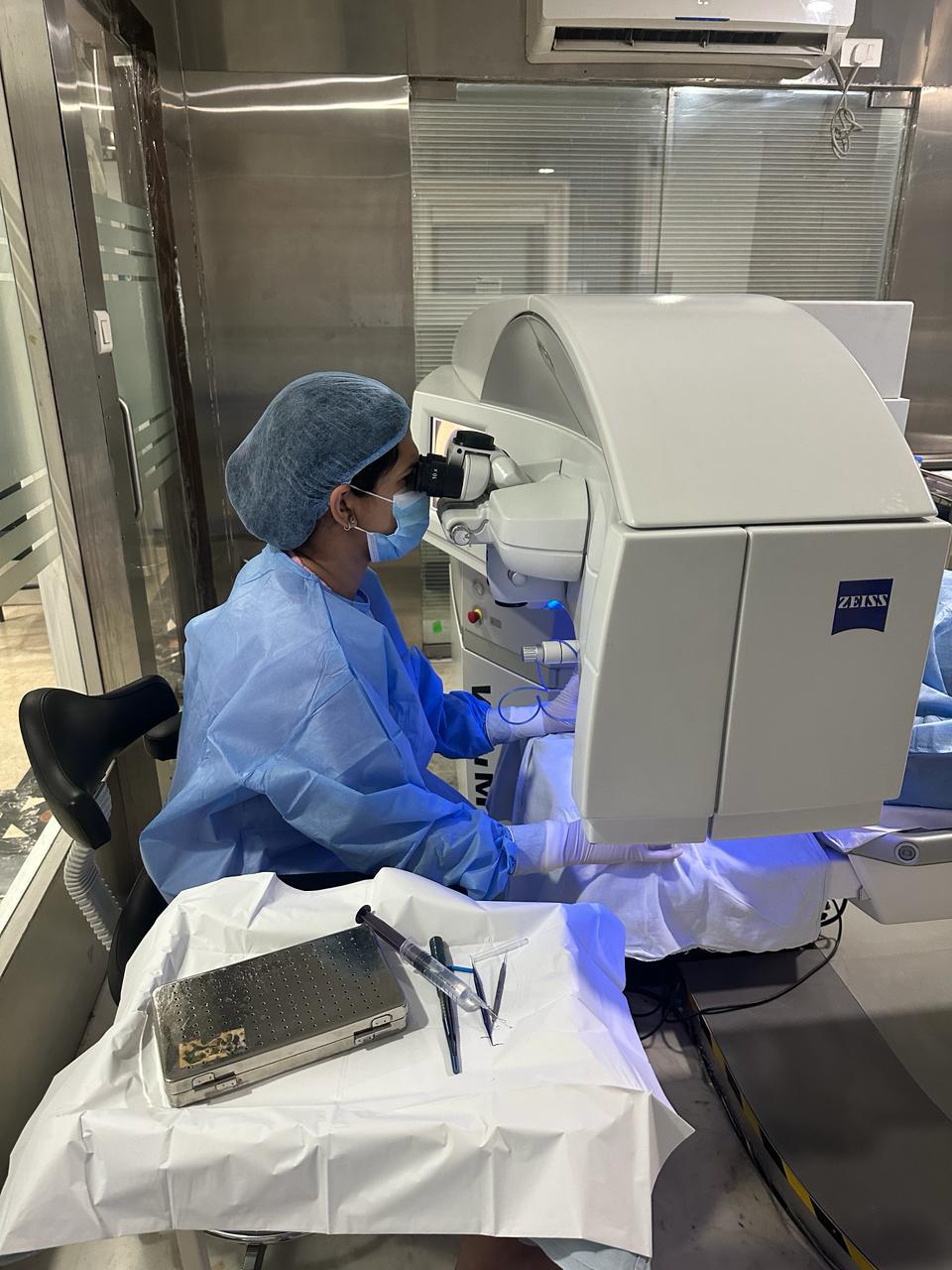Common Misconceptions About Laser Vision Correction

LASER REFRACTIVE SURGERY IS SHROUDED WITH MYTHS AND MISCONCEPTIONS. THIS BLOG AIMS TO ADDRESS AND DEBUNK A FEW COMMON ONES.
1. Myth: Laser Refractive Surgery is not a safe surgery
Fact: Laser Refractive Surgery is a surface eye procedure, not an intraocular procedure, hence the risks are not big. Common side – effects like night time glare with Relex Smile or dryness with LASIK are temporary and recover over a few weeks. Vision threatening complications like ectasia are extremely rare with an incidence ranging from 0.04% to 0.2% Hence Laser Refractive surgery is generally considered a very safe procedure. One is 200 times more likely to have a serious infection with contact lenses than with Laser Refractive Surgery!
2. Myth: Laser Refractive Surgery is painful
Fact: Numbing eye drops are used at the time of laser procedure, making it absolutely painless. Patient will feel touch sensation but no pain. If patient opts for blade LASIK, there may be ressure sensation and blackout for a few seconds, however, with bladeless or Femtosecond laser procedures, there is no discomfort at all.
3. Myth: Laser Refractive Surgery results are temporary
Fact: Laser Refractive Surgery is a permanent procedure with results aimed to last a lifetime. However, age related changes in the eye like Presbyopia or cataract cannot be prevented. These may necessitate spectacles in a later age.
4. Myth: Cylindrical number cannot be corrected with Laser Refractive Surgery especially with ReLEX smile
Fact: With newer technology and lasers, astigmatism can be treated with Laser Refractive Surgery. Relex Smile can correct upto 5D cylindrical error, Femto LASIK can treat upto 6 D astigmatism and Toric Phakic IOLs can be custom made for higher cylindrical errors upto 10 D.
5. Myth: Laser Refractive Surgery has a long recovery time
Fact: Laser refractive surgery is a day care procedure with a downtime of 2-3 days. In 3 days, patient can usually resume work and routine activities. It does not require hospitalisation or prolonged aftercare.
6. Myth: Laser Refractive surgery is a new procedure so we don’t know long term results.
Fact: Lasik has been around for over 3 decades and Relex SMILE for more than 12 years. Millions of people worldwide have undergone these procedure with countless studies confirming their efficacy and safety. With current technology, results are as good as they can ever be. Now is a great time to plan your Laser Vision Correction!
7. Myth: My number is never the same so I can’t undergo Laser Refractive Surgery
Fact: Stable refractive error is defined as no more than 0.5 D change in a year. Upto 0.5 change is an acceptable variation as refraction is a subjective test . Once growing age is complete i.e. after 18-21 yrs, number usually does not increase by more than 0.5 D in subsequent checkups, but it’s best to get an opinion from a refractive surgeon to find out if you are a suitable candidate.
8. Myth: Why go for advanced procedures when blade one will do the job?
Fact: Lenticule based procedures offer several advantages over flap based procedures like better biomechanical strength of cornea, smaller wound, lesser dryness, better stability of results. Basic procedures like surface treatment have slower recovery, lesser accuracy and risk of corneal haze. Blade or Microkeratome LASIK is a risky procedure with complications like flap buttonhole, free cap, incomplete flap. It is best to choose Femtosecond based procedures for better safety, accuracy & recovery. Visit a clinic where Femtosecond options are available and do not hesitate to invest in your vision!
9. Myth: Low errors don’t need Laser Refractive Surgery
Fact: Errors even as small as 1.00 DS can be corrected with Laser Refractive Surgery. If there is a need professionally like navy, army, airforce medical exam or if patient is highly motivated. This is an individual decision and the refractive surgeon will decide after a detailed consultation based on various lifestyle factors and tests whether a refractive procedure is warranted in a particular case.
10. Myth: Laser does the work so the doctor doesn’t matter
Fact: The skill, expertise and experience of the surgeon are of paramount importance in any surgical procedure. Knowing which patient is not a suitable candidate or handling a complication of the procedure, these are but a few scenarios where an excellent doctor is irreplaceable. A machine is but a tool and the actual surgery is still performed by the skilled hands of a doctor. The importance of choosing a fellowship trained refractive surgeon with adequate experience and good infrastructure backup cannot be stressed enough.

